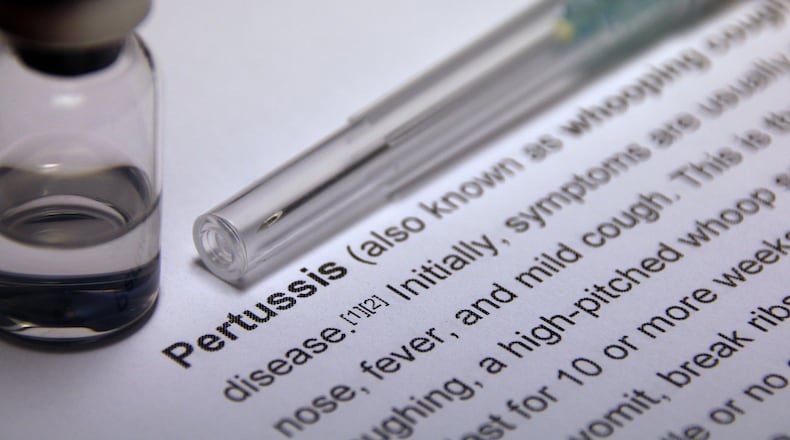This year’s totals are not yet “a concerning number,” as they are much lower than just before the COVID pandemic, when reported county totals were 86 in 2018 and 100 a year later, Suffoletto said.
But pertussis can spread more rapidly in the fall and winter months, he added.
“Like other respiratory diseases … we can see spikes as people come indoors more often,” Suffoletto said. “So as the weather begins to turn and people start doing activities more indoors and schools are open, people are gathering together more.”
Two cases were recently detected in a John F. Kennedy kindergarten class in Kettering, the district said. The school sent an Oct. 9 letter to parents of JFK students notifying them of the issue, which is most serious for babies and young children, according to health officials.
“Pertussis is a serious respiratory infection that spreads through the air when an infected person breaths, coughs or sneezes,” the letter states.
Montgomery County had six cases of individuals ages 5 to 18 in August and September, Suffoletto said.
Similarly, reported pertussis cases in Miami County totaled five through August, according to Nate Bednar, community services director. Since 2018, 21 cases have been reported in that county, but none last year, records show.
Four cases have been confirmed this year in Greene County, where eight have been reported since 2020, including zero last year, according to county records there.
There are peaks in reported cases of whooping cough every few years and frequent outbreaks, Suffoletto said.
Outbreaks may occur in settings such as schools, child care centers, hospitals, or in large geographic areas.
In Warren County, by mid-November of 2019, 26 of the 30 cases were reported by Springboro schools.
Vaccination is the best way to protect against it, according to the Center for Disease Control and Prevention.
Symptoms usually develop within five to 10 days after contact with the bacteria that cause it, the CDC states. Sometimes symptoms do not develop for as long as three weeks.
Early symptoms can last up two weeks and usually include:
•Runny or stuffed-up nose
•Low-grade fever (less than 100.4°F)
•Mild, occasional cough (babies do not do this)
•pnea (life-threatening pauses in breathing) and cyanosis (turning blue or purple) in babies and young children
In its early stages, whooping cough appears to be nothing more than the common cold. Therefore, doctors often do not suspect or diagnose it until the more severe symptoms appear.
About the Author

